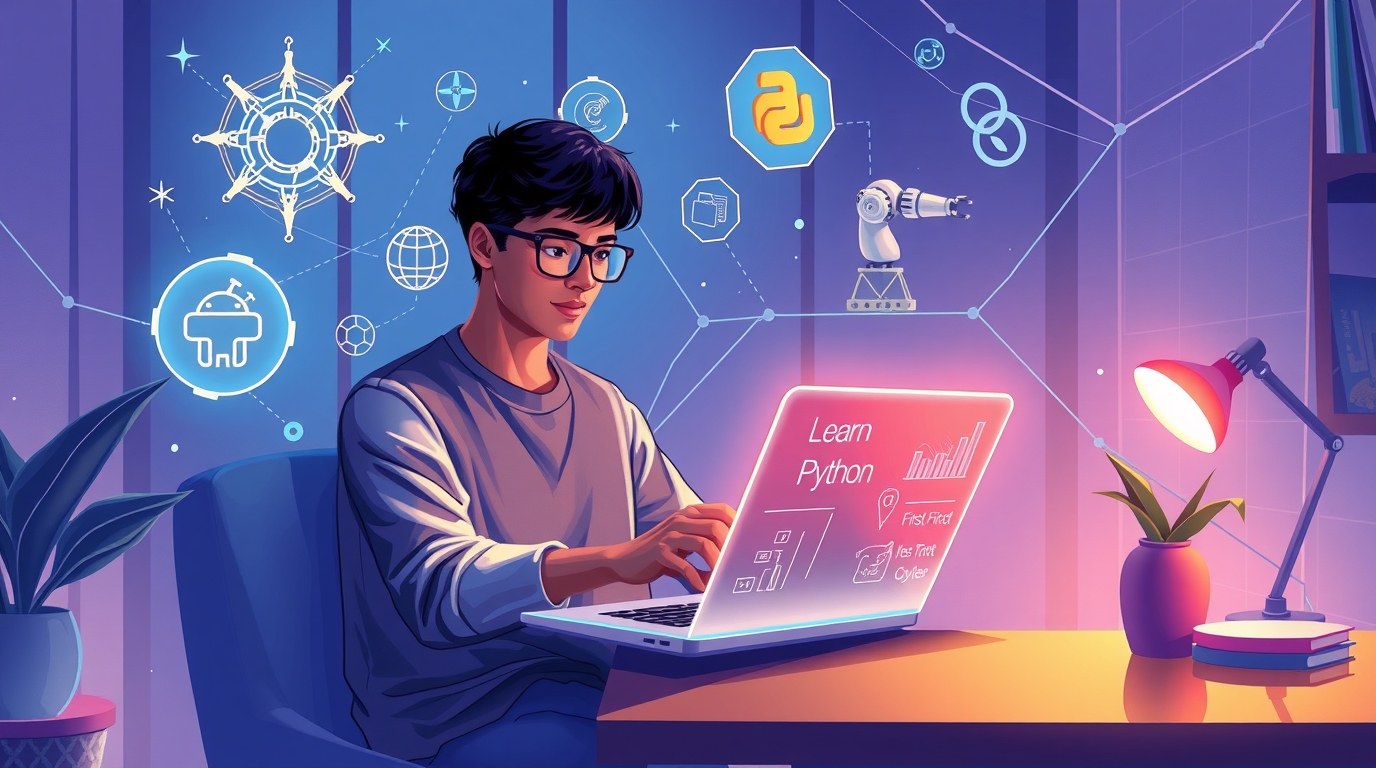고정 헤더 영역
상세 컨텐츠
본문 제목
How to Start a Career in Artificial Intelligence in 2025: A Step-by-Step Guide
본문
Dream of working in AI? Here’s your 2025 roadmap—no PhD needed! Learn the skills, jobs, and strategies to break into artificial intelligence. #AICareer

Introduction
Imagine this: You’re helping design AI that predicts climate disasters, creates life-saving drugs, or even talks to customers like a human. Sounds like sci-fi? It’s not—it’s 2025’s AI job market, and it’s hungry for talent.
But here’s the problem: Most guides say you need a PhD in computer science to get started. Wrong.
The truth? Companies care more about skills than degrees. With the right strategy, you could land an AI job in 12–18 months—even if you’re starting from scratch.
This guide covers:
✔ The fastest-growing AI jobs (and salaries to expect)
✔ Exactly what to learn (and where to learn it free/cheap)
✔ How to get hired without experience (portfolio hacks)
Let’s turn you into an AI professional—one step at a time.
1. Why AI Careers Are Booming in 2025
AI isn’t just ChatGPT anymore. Industries from healthcare to farming are scrambling for talent. Check these stats:
- The AI market will hit $1.8 trillion by 2030 (Statista)
- Jobs like AI Engineer and Data Scientist pay 120K–200K+ (Glassdoor)
- 42% of AI hires in 2024 came from non-traditional backgrounds (bootcamps, self-study)
Bottom line: Demand is skyrocketing, and you don’t need to be a genius to get in.
2. Top 5 AI Careers to Target (No PhD Needed)
1. AI Engineer
What you’ll do: Build and deploy AI models (e.g., chatbots, recommendation systems).
Skills needed: Python, TensorFlow/PyTorch, cloud platforms (AWS/Azure).
2025 Salary: 140K–220K
2. Data Scientist
What you’ll do: Analyze data to train AI systems.
Skills needed: SQL, Python (Pandas, NumPy), statistics.
2025 Salary: 110K–180K
3. Machine Learning (ML) Researcher
What you’ll do: Develop cutting-edge AI algorithms.
Skills needed: Advanced math (linear algebra, calculus), research papers.
2025 Salary: 160K–250K+
4. AI Product Manager
What you’ll do: Bridge tech and business teams to launch AI products.
Skills needed: Basic coding + stakeholder management.
2025 Salary: 130K–200K
5. AI Ethics Specialist
What you’ll do: Ensure AI is fair, transparent, and unbiased.
Skills needed: Law/policy + technical literacy.
2025 Salary: 90K–150K
3. Your 12-Month Learning Plan (Free + Paid Resources)
Phase 1: Months 1–3 (Foundations)
✔ Learn Python (free): Codecademy’s Python Course
✔ Math basics (linear algebra, stats): Khan Academy
✔ Intro to AI (free): Google’s AI Crash Course
Phase 2: Months 4–6 (Hands-On Projects)
✔ Machine Learning (free): Andrew Ng’s Coursera Course
✔ Build a portfolio: Predict housing prices, create a spam filter, etc.
Phase 3: Months 7–12 (Specialize + Network)
✔ Deep Learning (paid): Fast.ai
✔ Join AI communities: Kaggle, r/MachineLearning
4. How to Get Hired Without a Degree
1. Build a Killer Portfolio
- GitHub with 3–5 projects (e.g., "AI that detects fake news")
- Blog explaining your code (shows communication skills)
2. Ace the Interview
- Behavioral: "Tell me about a project where your model failed"
- Technical: LeetCode (easy/medium) + ML system design
3. Leverage Freelancing
Start small on Upwork (e.g., "Help a bakery predict daily sales").
5. 2025 AI Job Market Secrets
✔ Remote jobs dominate: 60% of AI roles are location-flexible (FlexJobs)
✔ Certifications > Degrees: Google/Microsoft certs open doors faster
✔ Soft skills matter: Explaining AI to non-tech folks is golden
FAQs
1. Do I need a master’s degree to work in AI?
No! Many hires come from bootcamps or self-study. Portfolio > pedigree.
2. What’s the easiest AI job to land first?
AI/ML Engineer roles at startups (they value skills over formal education).
3. Can I learn AI in 6 months?
Yes—if you study 20+ hours/week. Focus on Python + projects.
4. Will AI replace AI jobs?
Unlikely. AI creates more jobs (e.g., prompt engineers, AI trainers).
5. What’s the #1 mistake beginners make?
Not building projects. Theory without practice = unhirable.
Final Thoughts
Breaking into AI isn’t about being the smartest—it’s about being strategic. Start small, build in public, and leverage today’s remote-first job market.
Your turn: Which AI career excites you most? Share below—let’s cheer each other on! 🚀
External Links:
- Explore AI job trends on LinkedIn.
- Take free coding lessons at FreeCodeCamp.
- Read AI insights on Towards Data Science.




